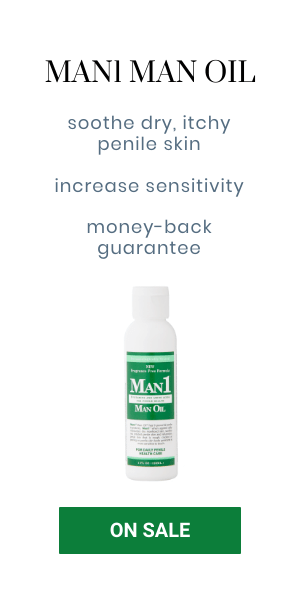Most men know about testosterone, which is often called the “male hormone,” largely because of the role it plays in penis health and because the word has become associated with a kind of aggressive masculinity. Many men have also heard of estrogen, often referred to as the “female hormone.” In fact, both sexes carry both testosterone and estrogen, so the nicknames are a bit misleading. And because estrogen is more popularly associated with women, many males are not aware of the role that estrogen in men plays with respect to their health and wellbeing.
Estrogen
As mentioned, estrogen is a hormone, but what exactly is a hormone?
According to the Hormone Health Network, hormones are:
…the body’s chemical messengers and are part of the endocrine system. Endocrine glands make hormones, which travel through the bloodstream to tissues and organs, and control most of our body’s major systems. The endocrine system regulates our heart rate, metabolism – how the body gets energy from the foods we eat – appetite, mood, sexual function, reproduction, growth and development, sleep cycles, and more.
For women, estrogen is of crucial importance. It promotes the growth of breasts and pubic hair and starts and controls the menstrual cycle, among other functions.
In men
In women, estrogen is produced in the ovaries. Clearly, that’s not the case in men. Instead, in men an enzyme called aromatase takes testosterone (which men produce in the testes) and converts some of it into estrogen.
Since men don’t get pregnant or breastfeed, why do they need estrogen? Because, as with most things, it’s important to have the right balance of hormones in the body. Essentially, men who have an appropriate mix of both estrogen and testosterone tend to have fewer problems in certain areas.
Too little estrogen is associated with weak bones and a tendency to fracture. It also is associated with heart problems. For example, in one study, men who had chronic heart failure and low estrogen levels were 317% more likely to die in the next few years. But ironically, too much estrogen is also linked with heart problems, including the risk of stroke. In addition, too much estrogen increases the risk of an enlarged prostate or prostate cancer. So striking a happy balance between too much and too little estrogen is important.
In terms of penis health, too much estrogen (and the resultant decrease in testosterone) can be linked to penis function concerns. The most common issues associated with increased estrogen in men are a decrease in sex drive and erectile dysfunction. In terms of the latter, this can be compounded because the high estrogen levels may bring about cardiac issues which affect blood flow to the penis. Higher estrogen levels also often bring about an increase in body fat, which can in turn interfere with normal sexual functioning.
Some scientists believe that high estrogen levels may also lead to a reduction in the size of the penis, although this is generally associated with very high levels consistent over an extended period of time.
Men concerned about potential estrogen problems should consult with a doctor about their concerns.
Estrogen levels are only one thing that can impact penis heath. Maintaining general penis health is crucial, as is use of a superior penis health crème (health professionals recommend Man1 Man Oil, which is clinically proven mild and safe for skin) . When choosing a crème, one that includes vitamin C is advised, as this is a key component of collagen, a tissue in the body that gives skin its tone and elasticity and is vital for penile erections. It also pays to find a crème that includes pantothenic acid (vitamin B5), which is a vital nutrient required for cell metabolism and the maintenance of healthy tissue.
